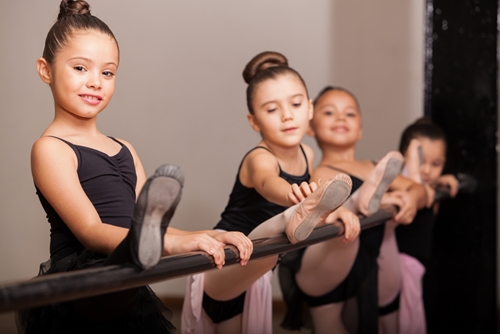Your responsibilities as a dance instructor can often go far beyond teaching tombes and arabesques. If you work with young students, you play a crucial part in their development as both dancers and individuals. It can be a big burden to shoulder! One of the best things you can do for your students is to establish policies that boost healthy self esteem while keeping them humble. The Dance Exec explained that a confident dancer who is modest and unassuming will be successful both on and off the stage. When you promote these qualities, your studio will become a positive environment where students are comfortable being themselves and working as a team. Here are a few ways to encourage healthy self esteem in your studio, so you can help mold your students into talented dancers who are also kind individuals.
Take Note of Budding Divas
If you spot that some of your students are becoming pushy, it’s best to nip the attitude in the bud before it gets out of control. Dance Studio Life noted that the first signs of an entitled student often come from the parent. If a mother approaches you to request her child gets special treatment, it may be that the student mentioned that she wanted a lead role or a more challenging part. When this happens, your best option is to have a heart-to-heart with the dancer. Talk about the student’s ability, her goals in the studio and how she can advance. Give praise where it is warranted to help the student feel confident, but include constructive criticism as well and explain that the dancer will be put in a lead role when she earns it.
Lead by Example
If you want your students to be humble, you should be a role model of appropriate behavior. Whenever you are in the studio, assume dancers are watching you and act accordingly. When you’re talking to parents or instructors, think about how you’d encourage the students to act, then follow your own advice! Being kind, understanding, and a confident example of healthy self esteem will help your students learn in and out of the classroom.
Encourage Random Acts of Kindness
Your dancers will grow into kind and humble individuals if they learn the rewards of doing small acts for others. This will also help them to build relationships and grow as a team. LoveToKnow Kids recommended encouraging your students to complete small acts of kindness within the studio. One idea is to have students write nice gestures that peers have made each week. This way no one is “tooting their own horn,” but you’re still recognizing kind acts. You can also talk to parents about organizing a charity event within your community, whether it’s a free performance at a senior center or a neighborhood clean up.
Don’t Make Exceptions to Studio Rules
One way you can ensure that no one student is advancing at the expense of another is to stay firm with your studio rules. Naturally, there will be extenuating circumstances once in a while where an exception is warranted, but try to enforce your policies on a day-to-day basis. Explain to the student and parent involved that the whole class is affected when dancers are prioritize their own needs ahead of the rest of the class, and your goal is to create a strong team who rely on each other to be at their fullest potential.
Intervene When Necessary
If you notice a dancer has a poor attitude or is particularly insecure, you may need to intervene. The best way to go about this is to follow the same method you would with any other sensitive meeting. Approach the situation respectfully, and make it clear that you’re looking out for the student’s best interests. Explain what you’ve observed and how it’s affecting the dancer and the class. If you’re dealing with an entitled student, you may benefit from putting the problem into perspective by explaining what would happen to a performer with a diva attitude in a professional dance setting. If the problem is a lack of confidence, try to suggest ways the dancer can step outside her comfort zone and create a sense of healthy self esteem.


